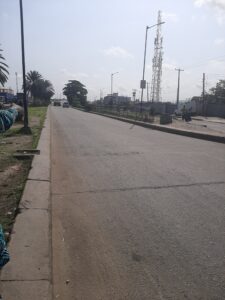The Ijora Bridge, a critical transportation artery connecting Ijora Causeway to Apapa in Lagos, Nigeria, is slated for a complete closure beginning April 27th to facilitate essential repair works. This announcement, made by Mrs. Olukorede Kesha, the Federal Controller of Works in Lagos, underscores the urgent need to address the deteriorating condition of the bridge, particularly its defective bearings. The bridge, which provides access to two of Nigeria’s most vital ports – Tincan and Apapa – plays a pivotal role in the nation’s maritime logistics and trade. The impending closure, while disruptive, is deemed unavoidable to ensure public safety and prevent further structural degradation of the bridge.
The closure necessitates the implementation of alternative routes to mitigate the anticipated traffic congestion. Motorists traveling from Ijora towards Apapa will be diverted through the Seven Up Roundabout. Heavy-duty vehicles, however, will be rerouted via Costain through Iganmu to reach Apapa. The Federal Ministry of Works has meticulously planned these diversions and expressed confidence in their efficacy in managing traffic flow. While acknowledging the inconvenience the closure will undoubtedly cause, the authorities have appealed for public understanding and cooperation, emphasizing the long-term benefits of the repairs.
The Ijora Bridge has been exhibiting signs of distress, including noticeable vibrations, prompting concerns from citizens and necessitating a thorough assessment. The vibrations stem from significantly weakened bearings, the spring-like supports located beneath the bridge deck. Although Mrs. Kesha has assured the public that the bridge is not in imminent danger of collapse, she emphasized the urgency of the repairs. The planned works represent the first major intervention on the bridge since its construction decades ago, highlighting the accumulated wear and tear over time.
The repair project will be executed in phases. The initial phase involves lifting the entire bridge deck to replace approximately 50 defective bearings across three sections. This critical phase necessitates the full closure of the bridge. Subsequent phases, including the removal and replacement of the asphalt, may be carried out in stages, possibly on Sundays, to minimize disruption to traffic flow. This phased approach reflects a balance between the urgency of the repairs and the need to mitigate the impact on commuters and businesses reliant on the bridge.
Public awareness and transparency are paramount in this undertaking. The Minister of Works, Sen. Dave Umahi, has mandated extensive publicity for any bridge closure to ensure that the public is well-informed. This commitment to transparency aims to foster public understanding and cooperation, crucial elements for the successful and timely completion of the project. The overarching goal is to restore the Ijora Bridge to a safe and reliable condition, ensuring the continued flow of goods and people to and from the vital Apapa ports.
The closure of the Ijora Bridge represents a significant undertaking with far-reaching implications for Lagos’s transportation network. The planned repairs, while disruptive in the short term, are essential for the long-term safety and functionality of the bridge. The meticulous planning of alternative routes, the phased approach to the repairs, and the commitment to public awareness demonstrate a concerted effort to minimize disruption and ensure the project’s success. Ultimately, the restoration of the Ijora Bridge will contribute to a more resilient and efficient transportation system, supporting economic activities and improving the lives of those who rely on this vital link.














